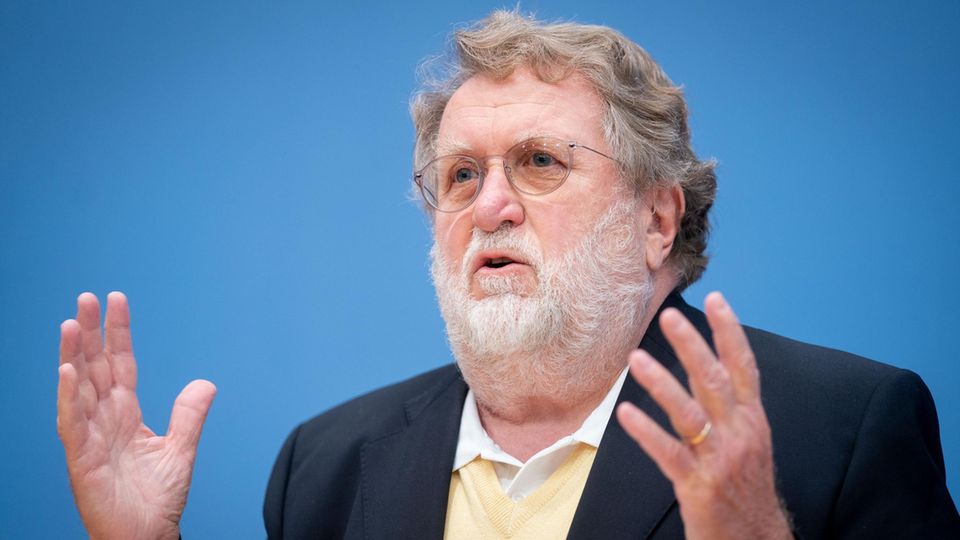The coronavirus has been turning the world upside down for around a year and a half. It has become increasingly clear that it will probably not go away anymore. What scenarios do researchers expect instead?
You have to get used to the idea for better or worse: Experts assume that the coronavirus cannot be eradicated for the time being. But will the prominent position that Sars-CoV-2 has held for around a year and a half come to an end at some point? What are the other risks? A team of scientists wrote an article about this for the journal “Nature”.
The article begins optimistically by stating that it is realistic to expect that the pandemic will be brought under control thanks to global vaccination efforts. The team of authors around Amalio Telenti and Davide Corti, who work for the pharmaceutical company Vir Biotechnology and various research institutions, also deal with unforeseeable developments and uncertainties.
Of three conceivable scenarios that the team mentions, one is particularly worrying: that mankind cannot control the pandemic quickly and will continue to struggle with severe courses and a high number of infected people in the future – which in turn will favor the further development of the virus could.
Is Corona becoming a seasonal disease like the flu?
A second and more likely scenario is the transition from Corona to a seasonal illness like the flu. Effective therapies such as antibody preparations made in the laboratory could help to massively reduce the severity of the disease and the rate of hospital admissions and deaths, the authors write.
The President of the German Interdisciplinary Association for Intensive Care and Emergency Medicine (Divi), Gernot Marx, recently in the “Handelsblatt” said that corona patients will continually end up in the intensive care units, but not in Above-average numbers like in the heyday of the pandemic. We are also seeing that with influenza “.
Normal flu – that may sound harmless to some. The authors of the “Nature” article point out, however, that influenza is estimated to be associated with several hundred thousand deaths worldwide each year. “This is an extremely significant health burden and corresponds to a relatively optimistic view of the future of the Sars-CoV-2 pandemic,” they state about this scenario.
As the third – and probably the most optimistic – option, the authors name the transition from corona to a disease with comparatively much less severe symptoms, similar to the well-known corona viruses. These are among the classic triggers of colds. However, the authors emphasize several times that it is not possible to predict with certainty whether the severity of the disease will actually increase or decrease with further adaptation to humans and how long such a development could take.
According to the authors, a possible development towards a flu- or cold-like pathogen, perhaps with peaks in the winter months, should in any case not occur until there is, among other things, a more widespread immunity in the population. Telenti and Corti also look at the influenza pandemic of 1918/19: descendants of the H1N1 pathogen would have caused epidemics well into the 1950s.
Role of mutants
The development of variants that can escape the immune system of vaccinated and convalescents remains a risk, according to the article. Because the pandemic is currently not or only incompletely under control in many regions of the world, there is a risk that more virus diversity will develop. According to the authors, being able to predict such developments with new tools would be beneficial. They also highlight a possible role for animal species in which the virus could circulate and continue to change.

However, they note that so far a relatively limited number of mutations have appeared independently of one another in several variants, which indicates a convergent and possibly restricted evolution of Corona. This coincides with the assessments of the Berlin virologist Christian Drosten: “From a virological point of view, there are good reasons to assume that Sars-2 does not have so much more in stock than what it has been able to show us so far,” he recently said in one interview
Corona expert Drosten expects in the long term that Sars-CoV-2 will behave like a cold corona virus. Transitional states are to be expected in the next two to four years – the virus will use vaccine picking, he said in a hearing in the parliamentary advisory committee of the Bundestag at the end of May.




